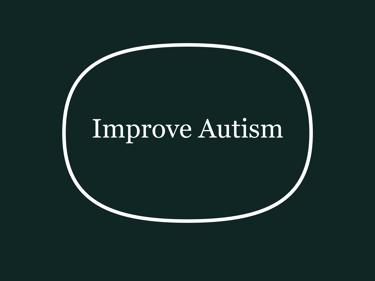Effects of Probiotic Supplementation on Gastrointestinal, Sensory and Core Symptoms in Autism Spectrum Disorders: A Randomized Controlled Trial
Authors:
Santocchi, E., Guiducci, L., Prosperi, M., Calderoni, S., Gaggini, M., Apicella, F., Tancredi, R., Billeci, L., Mastromarino, P., Grossi, E. and Gastaldelli, A.
Study Overview
This study found that certain probiotic called the De SImone Formulation (brand name Vivomixx®) was given to 85 children and help in two main ways:
In autisic children with gatrointistinal issues it help with these symptoms such as reducing stool smell and flatulance but also help with adaptive skills and sensory profile (multisensory processing).
In autisitc children with no gatrointestinal issues it helped with social affect and core autism symptoms with a better Autism Diagnostic Observation Schedule calibrated severity score (ADOS-CSS).
Key Findings
The study was a double-blind, randomized controlled trial involving 85 preschoolers with Autism Spectrum Disorder (ASD), aged 18 to 72 months (mean age 4.2 years), with 84% being boys. Participants were randomly assigned to receive either a probiotic supplement (n=42) or a placebo (n=43) for six months. The primary outcome was the Total Autism Diagnostic Observation Schedule - Calibrated Severity Score (ADOS-CSS), which measures autism severity. Of the 85 participants, 63 completed the trial (74%), with a 25.9% dropout rate.
For the entire group, there was no significant difference in Total ADOS-CSS scores between the probiotic and placebo groups, indicating that probiotics did not broadly improve autism severity across all participants. However, an exploratory secondary analysis divided participants into two subgroups: those with gastrointestinal (GI) symptoms (GI group, n=30) and those without (NGI group, n=55). This revealed distinct effects:
NGI Group (Children Without GI Symptoms):
The probiotic group showed a significant reduction in ADOS-CSS scores compared to the placebo group, with a mean decrease of 0.81 in Total ADOS-CSS and 1.14 in the Social-Affect ADOS-CSS over six months. This suggests an improvement in core autism symptoms, particularly in social affect, for this subgroup.GI Group (Children With GI Symptoms):
The probiotic group exhibited greater improvements in specific GI symptoms (e.g., stool smell and flatulence), adaptive functioning (e.g., receptive, domestic, and coping skills), and sensory profiles (e.g., multisensory processing) compared to the placebo group, though no significant change in overall autism severity was observed.
Details on Probiotics
Probiotic Used:
The probiotic administered was the De Simone Formulation (DSF), a patented mixture containing 450 billion live bacteria from eight strains:Streptococcus thermophilus
Bifidobacterium breve
Bifidobacterium longum
Bifidobacterium infantis
Lactobacillus acidophilus
Lactobacillus plantarum
Lactobacillus para-casei
Lactobacillus delbrueckii subsp. bulgaricus
Administration Method:
The probiotic was given orally, either dissolved directly in the mouth or mixed into a cold, non-carbonated liquid. The dosage was 2 packets per day for the first month, followed by 1 packet per day for the next 5 months, totaling a six-month treatment period.
Symptoms Improved and Timeframe
Symptoms Improved:
In the NGI Group (No GI Symptoms):
Core Autism Symptoms: Significant improvement in social affect, as measured by a reduction in the Social-Affect ADOS-CSS (mean decrease of 1.14) and Total ADOS-CSS (mean decrease of 0.81).
In the GI Group (With GI Symptoms):
GI Symptoms: Improvements in specific symptoms like stool smell and flatulence.
Adaptive Functioning: Enhanced skills in receptive communication, domestic abilities, and coping, as measured by the Vineland Adaptive Behavior Scales-II (VABS-II).
Sensory Profiles: Better multisensory processing, with a significantly higher proportion of children in the probiotic group showing normalized scores compared to the placebo group (87% vs. 28%).
Timeframe:
All improvements were observed over the six-month duration of the study, with assessments conducted at baseline (T0) and after six months (T2). The study does not specify when improvements first appeared within this period, only that they were evident by the end of the six months.
Summary of study
The study found that the De Simone Formulation (DSF) probiotic, administered orally over six months, did not significantly reduce overall autism severity in 85 preschoolers with ASD. However, it showed promising subgroup-specific effects: in children without GI symptoms, it improved core autism symptoms (e.g., social affect), while in those with GI symptoms, it enhanced GI function, adaptive skills, and sensory processing. These improvements were observed after six months. While probiotics offer potential benefits and appear safe, their effects are not universal across all ASD children, and limitations like sample size and dropout rates suggest caution in interpreting the results. Further research is needed to validate and expand on these findings.
https://pubmed.ncbi.nlm.nih.gov/33101079/
doi: 10.3389/fpsyt.2020.550593


